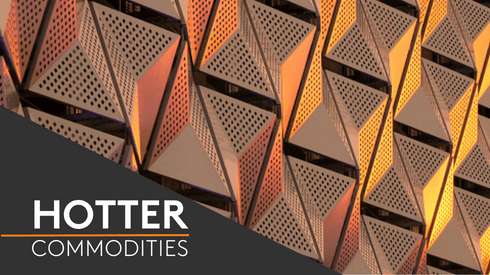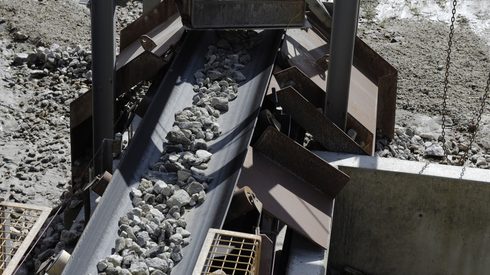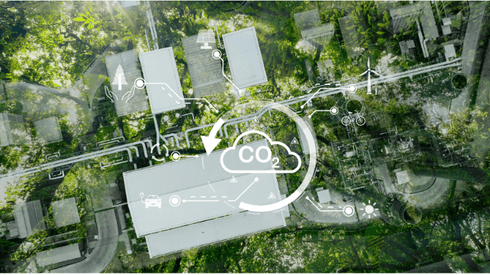On Tuesday April 18, the European Parliament voted in favor of reforming the EU Emissions Trading System (ETS) and introducing the CBAM.
The reforms will have to be formally approved by the European Council before publication in EU Official Journal and will then come into effect 20 days later.
Under CBAM, duties will be applied to imports into the EU of iron, steel and aluminium – along with cement, hydrogen, fertilizers and electricity – based on the direct emissions associated with the production of the material, and also indirect emissions under certain conditions.
“Importers of these goods would have to pay any price difference between the carbon price paid in the country of production and the price of carbon allowances in the EU ETS,” according to a statement from the European Parliament.
CBAM rules will be applied from October 1, 2023, but with a transition period wherein EU authorities will test CBAM without imposing any duties. Full implementation will start in 2026.
“[From] October 2023, overseas steel suppliers to the EU will [be required to report] their emissions to the EU authorities, but no tariffs will be applied. The test period will help the market understand how the system will function,” a trading source in Benelux area said.
CBAM will then be gradually phased in from 2026 to 2034, alongside the phasing out of the free carbon allowances applicable under the European ETS.
The phase-out of free allocations to industries under the ETS will start with a 2.50% cut in 2026. By 2030, the free allocations will be almost halved (down by 48.50%), before being completely eliminated in 2034.
The carbon permit price in the EU was around €90-97 per tonne in April 2023, having reached an all-time high of €100.34 in February.
Market reaction
Even though the transition period for CBAM implementation will begin in less than six months’ time, market sources claim it is still not clear how the system is going to work for both buyers and sellers.
“We are currently assessing the impact of this taxation by [talking to] our customers [in Europe]. There will clearly be the obstacle of having to pay the extra tax for some parties, but we don’t have a clear answer at the moment,” a steelmaker from Asia told Fastmarkets.
Once we start reporting in October, we’ll get a better picture of how this mechanism will actually work
“Once we start reporting in October, we’ll get a better picture of how this mechanism will actually work. [Right] now, we are at the initial phase of collecting information and doing research [into] how the system is going to function,” another steel producer form Asia said.
Several sources suggested that CBAM will reshuffle import flows in the EU and will have a particular impact on steel imports from Asia, because most of the steelmakers there use blast furnaces.
“For Asian mills, CBAM will become a major obstacle [to selling steel into Europe] because most of them rely on the blast-furnace route in the steelmaking process,” a trading source said.
In 2022, some Asian producers managed to boost their sales to the European market, notably of HRC – partly because of trade flow adjustments, with European buyers looking for alternative supplies after Russia’s invasion of Ukraine.
Japan exported 1.05 million tonnes of HRC to the EU in 2022, almost double the 591,355 shipped in 2021, according to the European steel association Eurofer.
And hot-rolled flat steel imports from South Korea to the EU amounted to 735,734 tonnes in 2022, compared with 463,777 tonnes in 2021.
European steel importers stressed that the mechanism’s current vagueness gives market participants little room to prepare for the implementation of CBAM.
“It is still not clear how CBAM can be practically administered so that customs, ports, importers, [steel] operations and logistics companies can prepare,” a second steel trading source in Europe said.
Market participants said there were two main options for this: that CBAM revenues are collected at the EU member state level via a customs duty process; or that they are collected through a centralized CBAM agency.
“Emissions will most likely be managed through the EU customs controls. Additionally, there is a possibility that actual reporting [of CO2 emissions] will start from the first quarter of 2024, not from October 2023 as had been planned initially,” a source told Fastmarkets.
And clarification is still needed on how carbon emissions values for imported goods will be calculated and verified or how the certification process will be implemented, sources said.
Meanwhile, European steelmakers said CBAM will boost the decarbonization of steel operations within Europe and globally and establish a fairer competitive environment for EU mills and overseas suppliers.
“European steelmakers are pioneers in decarbonization, [but] that comes at a price. Our steel is less competitive both at home and [in terms of] exports because we are faced with additional costs [that] our competitors are not paying, [such as having to buy] carbon permits,” a steel producers in the EU said.






